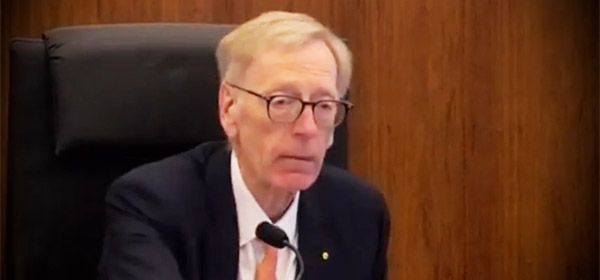The banking royal commission taught two watchdogs how to really bite when Michael Hodge QC savaged both, damning them for their hands-off approach to their regulatory roles.
The counsel assisting the commission on Friday grilled the Australian Prudential Regulation Authority (APRA) and the Australian Securities and Investments Commission (ASIC) on their lack of action in the face of misconduct in the financial services and superannuation industries.
The regulators were accused of having a soft touch when dealing with the banks’ wrongful taking of around $1 billion in fees from clients dating back to 2008.
APRA deputy chair Helen Rowell said it preferred to perform “behind-the-scenes” intervention in an attempt to prevent damage to pension fund members. When asked why APRA didn’t intervene when bank-owned funds and other firms were breaching laws requiring them to act in the best interests of their clients, Ms Rowell said the regulator didn’t want to get in the way of an industry-wide investigation by ASIC.
Mr Hodge damned APRA for not taking action, saying ASIC’s duties did not include determining whether funds were acting in the best interests of its customers.
He also accused ASIC of “bluffing” about launching legal action against ANZ Bank after learning it sold $3 billion in pension products without giving proper advice to customers.
ASIC executive Tim Mullaly said the regulator’s enforceable undertaking meant that ANZ promised to stop the practice from 18 August.
By and large, the royal commission has been witness to damning evidence of deplorable practice by many for-profit superannuation funds.
“I have to say that I have been incredibly disappointed and in many, many cases appalled by what has come out from the royal commission,” said Reserve Bank of Australia Governor Philip Lowe.
As a result, many major banks will be spending more on compliance and governance, provisioning for fines, selling wealth management businesses and returning to core lending.
There is also a “very high likelihood” that ASIC will soon launch proceedings against banks and financial institutions over illegal misconduct.
The regulators’ time in the “stand” followed a fortnight of dispiriting findings about fee gouging in Australia’s $2.6 trillion superannuation industry.
The banking royal commission found many retail super funds had been derelict in their legal duty of care to customers. The evidence showed that those funds had put their own needs and goals ahead of members, and just as often took advantage of them through various charges of financial misconduct.
One particularly vexing example was the response from AMP and NM Superannuation funds director Rachel Sansom and chairman Richard Allert, who basically blamed the client for allowing fee-gouging and low – sometimes even negative – returns from AMP funds.
Mr Hodge was staggered by one example of this practice – a member in their late 60s whose super was wholly invested in cash and was paying an adviser service fee every month, yet whose net return for the year ending 30 June 2016 was $3.23.
When Mr Allert was asked why the member didn’t just invest their retirement savings in an interest-bearing account with AMP bank, he replied: “You would have to ask the client.”
The inquiry has exposed widespread wrongdoing in the banking and wealth management industries, largely due to super fund members being disengaged and disadvantaged through a lack of financial literacy.
Interestingly, the YourLifeChoices Financial Literacy Survey 2018 revealed that 86 per cent of the 5064 respondents said they managed their own financial affairs, with over 70 per cent managing their own finances in the past few years either well (50.4 per cent) or very well (20 per cent).
Sixty-three per cent also believe they manage their finances and investments well (50.5 per cent) or very well (13 per cent), and 52 per cent said they were either confident or very confident about their long-term future.
These findings seemingly contradict evidence of financial literacy about super.
“Members of superannuation funds, like most beneficiaries, are vulnerable … many are disengaged and disadvantaged by a lack of financial literacy,” said Mr Hodge.
“They are readily able to be taken advantage of. And the evidence suggests that this has occurred in some cases.”The next round of the inquiry will happen in September, when the commission targets insurance and the final round will take place in November, when it examines policy issues.
Read more at www.reuters.com
Are you a member of any funds found guilty of misconduct? How financially literate do you consider yourself? How much do you know about your super fund?
Related articles:
Super inquiry week one wrap up
Bank super funds admit breaches
A sector you trust less than banks

